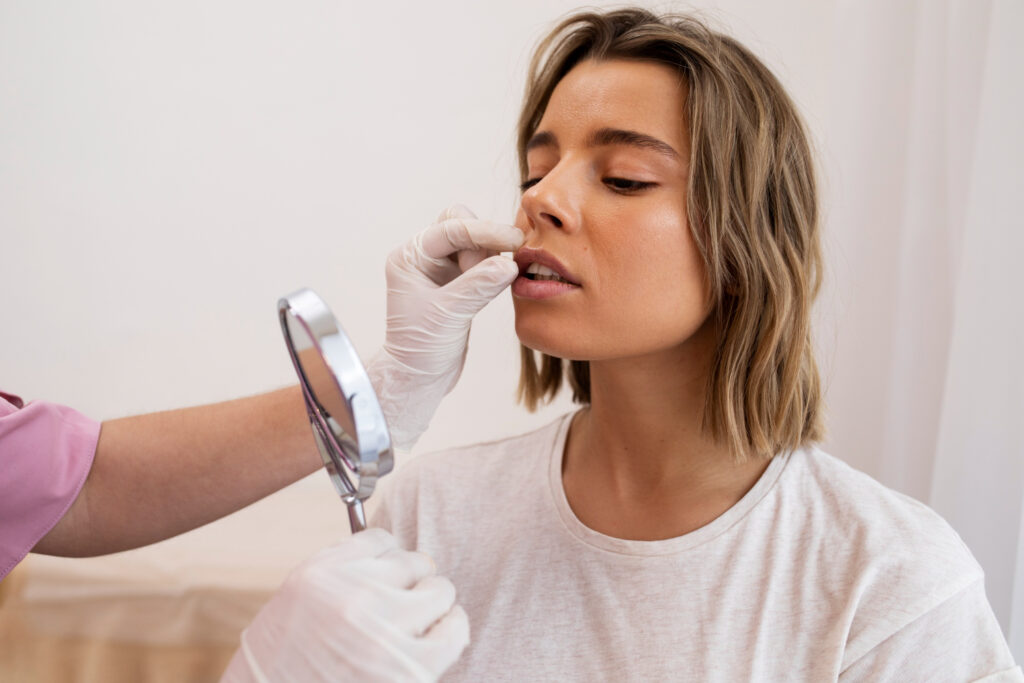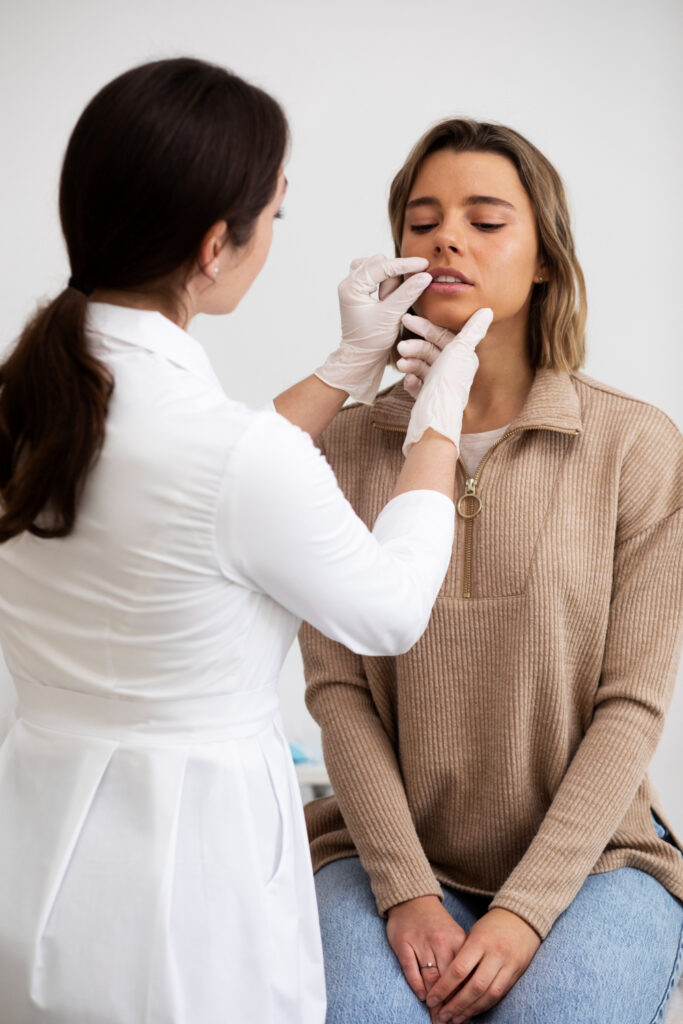
In this article
Causes of Mouth or Tongue Cuts
Mouth and tongue cuts can occur due to various reasons:
- Accidental Bites: Biting your lips, tongue, or cheeks while eating.
- Trauma: Knocks to the mouth or falls.
- Dental Devices: Braces or other dental devices causing scratches or cuts.
Signs of a Mouth or Tongue Cut
You might experience the following symptoms:
- Bleeding from the mouth, lips, or gums.
- Pain in or around the mouth.
- Swelling of the lips or jaw.
First-Aid Steps for Mouth or Tongue Cuts
- Ensure Breathing: Make sure the injured person is breathing comfortably, as swelling or heavy bleeding can obstruct breathing.
- Check for Other Injuries: Mouth injuries from impacts might be associated with head injuries or dental damage.
- Apply Direct Pressure: Use a clean cloth or pad to apply pressure to the wound. Secure the dressing if possible. If helping someone else, wear disposable gloves.
- Manage Heavy Bleeding:
- If bleeding continues through the first dressing, apply a second dressing.
- Do not stop applying pressure. Replace the second dressing if necessary.
- Bleeding should stop within 10 minutes of continuous pressure.
- Avoid Swallowing Blood: Spit out the blood to avoid nausea or vomiting.
- Clean the Wound: If the wound is not bleeding, rinse it with clean water.
- Pain Relief: Consult a doctor or pharmacist for suitable pain relief medications.
- Tetanus Risk: If the cut was caused by a dirty object, ask your doctor if a tetanus booster is needed.
When to Call an Ambulance
Call an ambulance if the bleeding doesn’t stop after 10 minutes or if you notice:
- Pale, cold, or clammy skin.
- Fast or shallow breathing.
- Fast or weak pulse.
Stitches and Medical Attention
- Tongue or Palate Cuts: These generally heal on their own and usually do not require stitches unless they are very large or do not stop bleeding.
- Inside Lip Cuts: Typically do not need stitches.
- Outside Lip Cuts: May require stitches; seek medical assessment.
When to See a Doctor

You should see a doctor if:
- The mouth or tongue becomes very swollen or painful.
- There is discharge coming from the wound.
- You develop a fever.
- You begin to feel unwell.
These could be signs of an infection needing antibiotic treatment.
Pain Relief and Swelling Reduction
- Salt Water Rinse: Rinse your mouth with a solution of half a teaspoon of salt dissolved in a cup of lukewarm water to relieve pain and reduce the risk of infection.
- Cold Compress/Ice Pack: Apply to reduce swelling and relieve pain.
- Pain Relievers: Over-the-counter options like paracetamol can help manage pain.
A Quick Review
Mouth and tongue cuts often result from bites, falls, or dental devices. Key symptoms include bleeding, pain, and swelling. Apply direct pressure to stop bleeding and avoid swallowing blood. If bleeding persists for over 10 minutes, seek medical help. Most cuts heal without stitches, but large or persistent ones might need professional care. Use saltwater rinses, cold compresses, and pain relievers to manage discomfort and reduce swelling. Always consult a doctor if there are signs of infection or severe symptoms.











